Opinion
Time for Africa
Published
3 years agoon
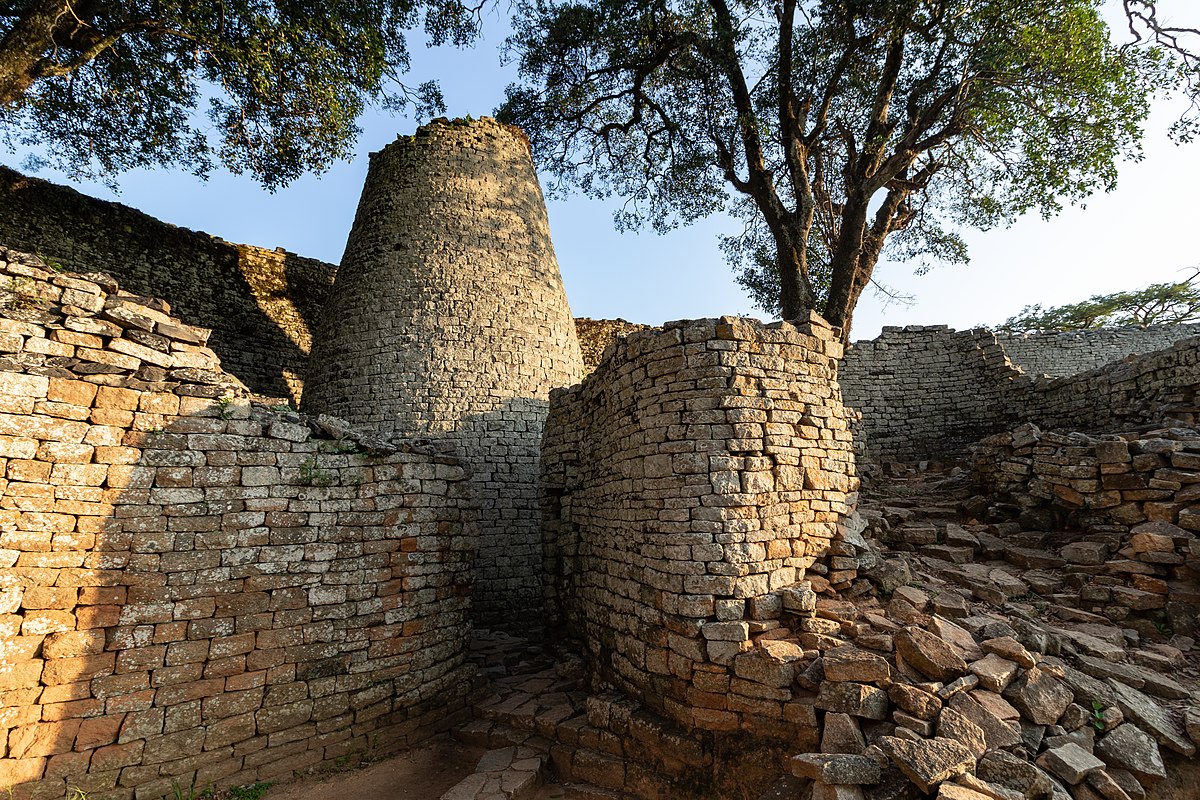
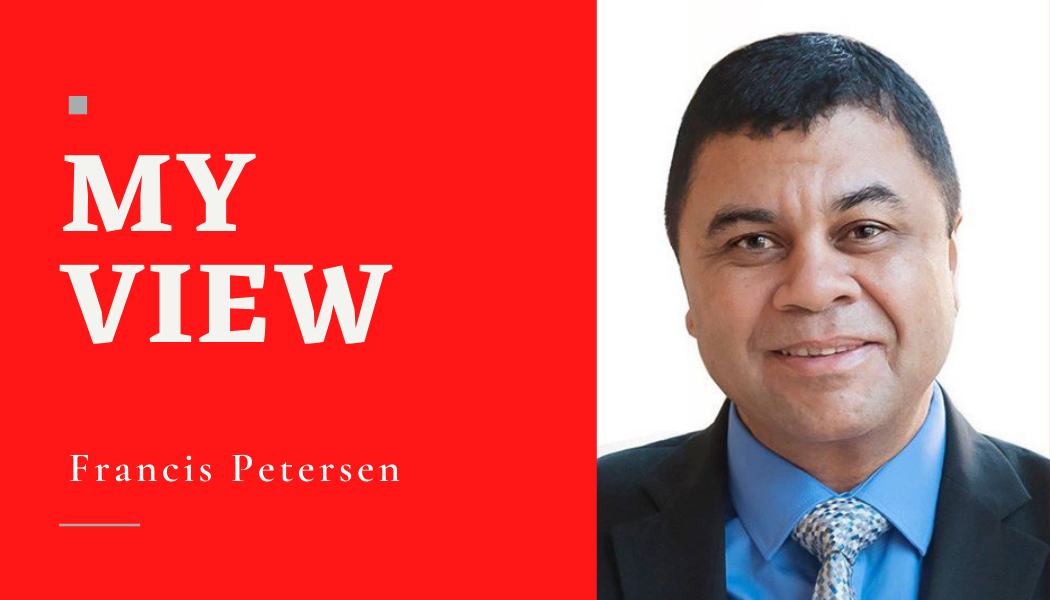
Africa has come a long way in shaking off the image of a continent that is consistently dependent on and trailing the rest of the world for investment, development, direction and validation.
We are diversifying our economies to move away from economic dependence on the global north, and actively searching for African solutions to African problems.
Moreover, while Africa remains an attractive investment destination, it is now more sought after for its people than for its physical assets.
It is often said that Africa ought to learn from the west – but not much is said about what there is to learn from Africa.
At this point in time, there is in actual fact much that the rest of the world can learn from Africa.
At the University of the Free State (UFS), we greatly treasure our African heritage and take care to observe Africa Day each year in a mindful and inclusive manner.
The theme of our 2021 UFS Virtual Africa Month celebration is: One Africa together forever – solidarity in knowledge production and recording.
Africa Day and Africa Month is an opportunity to strengthen solidarity within our region by reaching out to different communities across our continent and learning from their insights and experiences.
But it is also a time to reflect on the contributions our continent has made to the global society over the ages.
What can the world learn from Africa?
Preserving our heritage
Before anything else, we need to ensure that the world has a legitimate, credible record of African achievements and contributions.
The recent devastating fire at the University of Cape Town that gutted the irreplaceable African Studies collection of the Jagger Reading Room was a hard blow to anyone who values our African heritage.
It was a painful reminder that we need to do everything we can to safeguard the records and artefacts that encapsulate our continent’s role in global development in different fields.
Birthplace of humanity
Most scientists agree that modern humans evolved from somewhere on the African continent before spreading across the world and becoming the dominant species we are today.
The mere fact that Africa is the birthplace of humankind should be drenched in significance for anyone interested in exploring the common roots of different nations.
In the words of the great African-American poet and civil rights activist, Maya Angelou: “If you don’t know where you’ve come from, you don’t know where you’re going.”
Science and technology in ancient Africa
It is unfortunate that, apart from ancient Egypt, the accomplishments of ancient African communities have not been that widely publicised at all.
There is scientific evidence of unique numeration systems developed thousands of years ago in Nigeria and the Democratic Republic of the Congo; ancient Tanzanian furnaces used in metallurgy and tool making that far exceeded those of the Romans; and of ancient African discoveries concerning stars and planets that formed the building blocks of modern-day astronomy.
When it comes to architecture, the Egyptian pyramids and evidence of impressive structures found in the ruins of great ancient cities in Zimbabwe, Mozambique and Mali reflect great architectural and engineering skills.
It is encouraging to see how much of this information is now consistently being incorporated into our school curriculums.
The UFS, like many other institutions of higher learning, is taking up this baton through a consistent process of reviewing and decolonising our curriculums to achieve a more comprehensive and balanced knowledge base in all fields of study.
Vast potential for agriculture
Africa’s value to the global community exists in various forms today.
Across the African continent, plummeting revenue from natural resources such as oil, gold and coal has led to diversified economies and large-scale investment in agribusiness.
Currently, the agriculture sector employs more than half of the labour force in Africa.
On top of that, the World Economic Forum revealed in 2019 that Africa had the highest entrepreneurship rate in the world, with around 22 percent of working-age Africans starting new businesses.
Provided that African countries manage to get the necessary quality control and food-safety management systems in place, some investors are already talking about the potential of Africa to ‘feed the world’ within a few decades.
Indigenous knowledge systems
The recognition of indigenous knowledge is gaining ground worldwide.
Here at the UFS, indigenous knowledge systems is a specialist field in our Centre for Africa Studies, and is actively pursued as a major branch of its academic and research endeavours.
One of our flagship research efforts is the pharmacological assessment of the healing qualities of cannabis, which is believed to be one of humankind’s first cultivated crops, used in Southern Africa since about 1400 AD for spiritual and medicinal purposes.
Systematic medicinal research done by our Department of Pharmacology investigates its use as a treatment for cancer, pain management, diabetes and hypertension.
As a testament to the world’s acknowledgement of the value of traditional African medicines, our director of pharmacology, Professor Motlalepula Matsabisa, was recently appointed as chairperson of the WHO Regional Expert Advisory Committee on Traditional Medicines for COVID-19.
Africa’s response to COVID-19
When it comes to COVID-19, many commentators have in recent times been vocal on how the rest of the world can learn a few things from Africa’s response to the pandemic.
Some point out the fact that in many African countries, dedicated pandemic response systems used for previous pandemics (such as Ebola) were kept in place, whereas in many Western and European countries these often had to be hastily convened or re-convened.
Many African countries’ health systems also have a strong inherent focus on prevention, obviating an overreliance on treatment, which can prevent infections from spiralling out of control.
African leaders have also generally been praised for clear, cohesive and united communication as well as far better collaboration between countries, than their counterparts from elsewhere in the world.
Solidarity and Ubuntu
It is this kind of valuable solidarity that we aim to cherish and rekindle with our Africa Day celebrations.
And it is this solidarity that holds a great lesson for the rest of the world.
If there is one thing that we have all learnt from the COVID-19 pandemic, it is that no country is an island, and that we should learn from one another’s mistakes and successes.
The solidarity that is so important to Africans should become a priority for the rest of the world too.
And at the core of African solidarity lies the age-old concept of Ubuntu – the ancient African word that encapsulates the idea of a shared humanity.
The meaning of ‘ubuntu’ has become more nuanced and textured over time – that much is clear when one looks at its definition in the New World Encyclopedia:
“Ubuntu implies an appreciation of traditional beliefs, and a constant awareness that an individual’s actions today are a reflection on the past, and will have far-reaching consequences for the future. A person with ubuntu knows his or her place in the universe and is consequently able to interact gracefully with other individuals.”
It is a word that embodies sustainability, selflessness and tolerance – so much of what we all need right now.
In an era marked by fears of dehumanisation brought about by the Fourth Industrial Revolution and isolation brought about by the COVID-19 pandemic, I believe this ‘graceful interaction with other individuals’ is what the whole world yearns for.
Time for Africa
There is another piece of African wisdom that I believe is equally applicable to the times we are living in.
The concept of ‘African time’ is often used in a light-hearted manner to poke fun at an individual for lack of punctuality.
But there is a profound additional meaning that one can derive from the concept of African time.
Haraka haraka, haina baraka is an ancient Swahili proverb which, loosely translated, means ‘hurrying doesn’t bring blessings’.
The pandemic with its protracted lockdowns plus the inevitable reflection on our fragility and mortality has for many people had a profound impact on our perception of time and how we use it.
Instead of simply racing through life, neglecting the things we truly value, African wisdom dictates that we cherish the time we have and invest it wisely.
This dovetails beautifully with another well-known African proverb:
if you want to go fast, go alone. But if you want to go far, go together.
May we all make time for each other and ‘go together’ this Africa Month.
- Professor Francis Petersen is the rector and vice-chancellor of the University of the Free State
You may like
-


CUT gets R97-million boost for medical device manufacturing
-
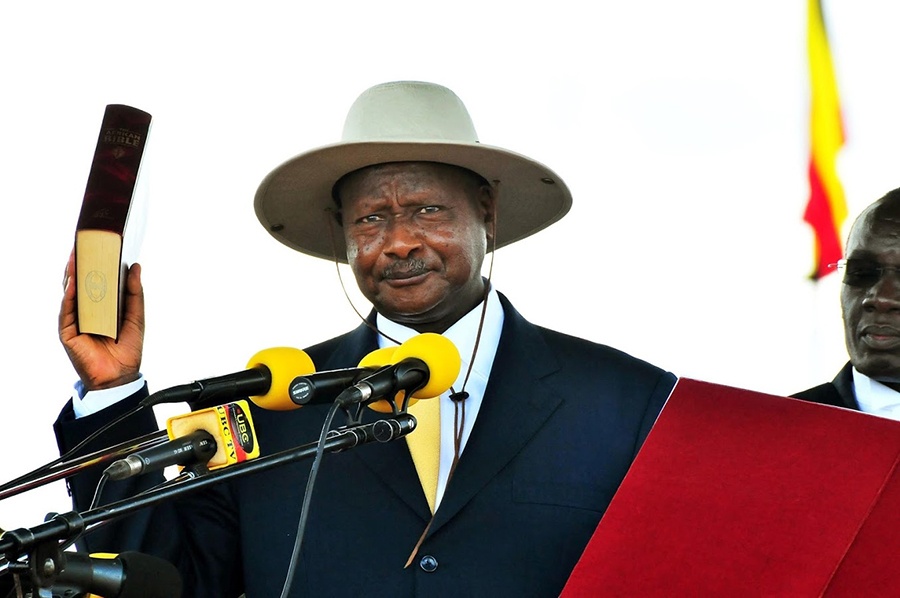

Africa’s crisis of leadership and lack of credible institutions
-


Overcoming COVID-19 with the strength and resilience of Sharpeville
-


Botshabelo Industrial Park attracts investors
-


12 million in SA ‘probably’ had coronavirus
-


‘Hotel Rwanda’ hero arrested on terrorism charges
Opinion
How focus on sexual consent can create safer university spaces
Published
1 year agoon
April 5, 2023

Sexual violence in the form of sexual assault is a serious problem on South African university campuses, and it can be argued that it is sanctioned and embedded within institutional cultures.
Sexual assault on university campuses is a serious issue that affects many students and can have a devastating impact on the survivors, their families and the wider community.
Unfortunately, this is also a widespread problem, with many universities and colleges around the world reporting incidents of sexual assault and harassment.
For example, statistics from recent studies and reports show alarming rates of sexual violence.
In a 2019 survey conducted by the Higher Education and Training HIV and Aids Programme, 19 percent of students reported experiencing sexual assault on campus.
The same survey found that 27 percent of students reported experiencing unwanted sexual advances, while 18 percent reported experiencing sexual harassment.
Furthermore, in a 2016 survey conducted by the South African Union of Students, more than 70 percent of respondents reported knowing someone who had experienced sexual violence on campus.
These statistics highlight the urgent need for institutions of higher learning to take action to address sexual violence, especially sexual assault and harassment within their institutions, which can be achieved through awareness campaigns.
The month of April is Sexual Assault Awareness Month (SAAM) – an important time to raise awareness and educate people about the importance of consent in all forms of sexual activity.
Consent is a fundamental aspect of healthy sexual relationships, and it is important to understand what it means and how to ask for it.
Education on consent in higher education institutions can help prevent sexual assault and ensure that everyone is comfortable and safe during sexual activity.
During SAAM, it is essential to educate ourselves and others on the importance of consent, how to recognise and address situations where it is not given, and how to create a culture of respect and understanding around sexual consent.
This education can help promote a safer and more positive sexual culture, free of sexual assault and harassment on university campuses.
The prevalence of rape culture at South African universities is a serious and concerning issue.
Rape culture refers to the normalisation of sexual violence in our society and a culture where sexual violence is often excused, normalised and even glorified –it manifests, for example, through victim blaming, protection of perpetrators, objectification of women and jokes about rape, etc.
This culture perpetuates harmful attitudes and behaviours that contribute to sexual harassment, assault and rape.
These perceptions are learned from the way society is socialised – that is gender roles and cultural beliefs and attitudes that maintain that men are active agents and receivers of consent, while women are merely passive agents and receivers of consent.
This notion is deeply problematic and has serious implications for gender equality and the way society perceives and treats women.
For example, it consequently reinforces gender stereotypes, perpetuates rape culture, ignores the complexity of consent, leads to victim-blaming and re-enforces gender imbalances.
It is essential to address rape culture at universities, because sexual violence and harassment have a devastating impact on survivors and can affect their physical, emotional and psychological well-being.
Survivors of sexual violence may experience a range of negative outcomes, including anxiety, depression, post-traumatic stress disorder and substance abuse.
Additionally, sexual violence can negatively impact academic performance and lead to students dropping out of school.
Addressing rape culture at universities is also important because it promotes a safe and supportive environment for all students.
Furthermore, by addressing rape culture, universities can help to prevent sexual violence and harassment from occurring in the first place.
Promoting a culture of consent and respect, educating students about healthy relationships and boundaries and holding perpetrators accountable for their actions can all contribute to creating a safer campus environment.
By taking a proactive stance on these issues, universities can help to change attitudes and behaviours that contribute to a culture of violence and promote a culture of respect and equality.
Cultural and traditional beliefs and attitudes can have a significant impact on how consent is understood and practised in a society.
As it stands, there are problematic views of it, hence it is crucial to re-socialise our society to get rid of these problematic attitudes.
For example, some cultures and traditions have strict rules around gender roles and sexual behaviour, which can make it difficult for individuals to assert their own boundaries and preferences in sexual encounters.
Additionally, some cultures still view sexual activity, especially for women, as taboo or shameful, which makes it difficult for them to communicate openly about their desires and needs.
Again, there are some who believe that men are entitled to sex and that women should be passive and submissive in sexual encounters, which leads to situations where women are coerced or pressured into sexual activity without giving their full and enthusiastic consent.
On the other hand, some cultures still view sex as a duty or obligation within marriage or a relationship, which can make it difficult for individuals to say no to their partners.
Thus, a focus on re-teaching consent can help change perceptions, prevent sexual violence and change the rape culture in university communities.
Moreover, because they are a direct reflection of our larger society, all the beliefs and attitudes have been assimilated into university cultures and institutions.
Therefore, it is crucial for higher education institutions to identify and refute cultural and traditional attitudes and beliefs that support forceful or non-consensual sexual conduct.
Consent speaks to the enthusiastic and ongoing agreement between all parties involved in a sexual or romantic encounter.
It means that all parties involved have given explicit permission and are fully aware of what is happening.
Therefore, consent education is incredibly important in higher education institutions, because it helps to create a culture of respect, safety and a sense of comfort in relationships for its student and staff community.
Consent education helps to teach that it is not just about saying ‘no’, but also about actively seeking and obtaining consent in a way that is respectful, clear and mutually understood.
A focus on consent education through awareness campaigns on and around campus can help create safer spaces for staff and students, because it empowers them to make informed decisions about their bodies, boundaries and relationships.
It can further help to prevent sexual assault and harassment, as well as to promote healthy relationships and positive sexual experiences for all.
By educating university staff and students about consent, we can help to create a university community where sexual violence is not tolerated, where people are empowered to make informed decisions about their bodies and where healthy and respectful relationships are the norm.
Lastly, by educating students on what constitutes consent and the importance of seeking it, institutions of higher education can help create a culture of respect, autonomy and safety for all.
- Siyanda Magayana is a senior officer with the Gender Equality and Anti-Discrimination Office in the Unit for Institutional Change and Social Justice at the University of the Free State.
Opinion
Death by suicide: the final symptom of mental illness
Published
2 years agoon
September 7, 2022
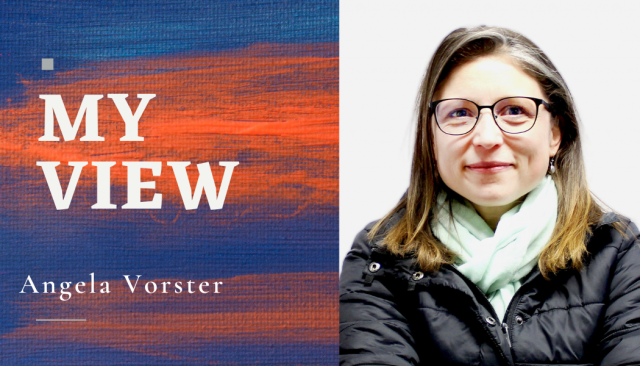
Twenty-three people will die from suicide today in South Africa. Another 460 South Africans will try to end their lives today.
They are from different cultural groups, different income groups, attained different levels of education, speak different languages, range in age from childhood through to elderly, have different genders and sexual orientations.
These people have very little in common except that their lives all ended due to the final symptom of an illness.
People who experience thoughts of ending their lives describe this mental space as feeling grey.
Their thoughts tend to keep returning to the futility of being alive, what a burden they are to those around them, how nothing will ever get better and that nobody can help them.
They tend to experience feelings of worthlessness, self-hatred, guilt, hopelessness, immense sadness and despair.
Their suffering and emotional pain are excruciating. Nothing is enjoyable anymore. There is nothing to look forward to.
Everything is difficult, boring, scary or meaningless. Inwardly they are drowning.
But very often they smile, do their job and pass their exams, go on dates and vacations, make plans for the weekend and check up on their loved ones.
They look happy in their photos. And when someone asks them if they are okay they say yes.
Because they don’t feel like they deserve to feel better.
They don’t want to be a bother.
They might not call a helpline or make an appointment to see a psychologist or go to their GP for anti-depressants.
Because they just don’t have the energy. It’s exhausting pretending to be fine all day.
The one thought that brings relief is that they can end this pain.
And one day they do.
And their colleagues, friends and family are left reeling with shock and disbelief.
How could this have happened? How could they have missed the signs? What should they have done differently to prevent this?
This is the purpose of World Suicide Prevention Day which takes place internationally each year on 10 September and through which the International Association for Suicide Prevention endeavours to increase awareness of suicidality, as well as to fight the stigma associated with suicide.
Wanting to die can occur along with many other symptoms and disorders including, but not limited to, depression, post-traumatic stress disorder, bipolar disorder, psychotic disorders, personality disorders and substance dependence or abuse disorders.
The causes are as complex and varied as the manner in which suicidality may present.
It is dangerous to regard only certain signs and symptoms as indicative of suicide risk, because we know that suicide can be extremely unpredictable.
There is no way to tell if someone is a suicide risk based purely on their behaviour.
However, there are certain factors which may indicate an increased risk for self-harm.
These include, but are not limited to, having previously tried to end their life, having a psychiatric illness, being seriously ill or having chronic pain or the misuse of substances.
Experiencing legal, relationship, financial or academic stressors may increase suicide risk, as well as having access to lethal means to end their life along with being unable to access mental health care.
So, what can you do if you think someone may be at risk of self-harm?
Say something. Talk to them.
Tell them what you are worried about and give them the space to express how they feel without judgment or condemnation.
Reach out to their support system and share your concerns with them.
Encourage the suicidal person to make contact with a health care professional – this can be a psychologist, GP, psychiatrist, social worker, psychiatric nurse, counsellor or a suicide prevention help line.
Other important members of our community who provide a great deal of assistance to suicidal people and their families include religious and spiritual leaders, teachers, support groups and employee assistance programmes.
There are actually so many ways and places to receive health care and support.
However, the most significant barrier to making use of these resources is sustained by the stigma associated with suicide and mental illness.
In our culture of toxic positivity where our photos are touched up, our statuses updated and our successes plastered on various social media platforms, the authentic act of acknowledging when we feel defeated, unhappy or like a failure has become a rarity.
The more real, honest and vulnerable we can be about our ‘undesirable’ emotions and experiences, the more space we create for those around us to do the same.
When we normalise not being okay at all times, we give ourselves and others permission to speak up when we need help.
And this is our greatest weapon against suicide – authentic connection.
We’ve explored what it may feel like to be suicidal, now let’s focus on what suicide is not.
Suicide is not a moral failing.
It is not because the person was weak or selfish, it is not because their family was dysfunctional or their faith not strong enough.
Suicide is the final symptom of mental illness – and every single person is vulnerable to experiencing suicidal thoughts.
Each one of us will be affected by suicide during the duration of our lives, either directly or indirectly.
This is irrespective of how successful you are, how supportive your family is or how strong your religious convictions are.
Dying by suicide is not a shame. It is not a failure.
It is no different to a patient dying from any other disease.
And just like any other illness there are symptoms we can look out for and treatments and medications that can assist in recovery.
Please think before you speak about someone who died due to suicide.
I guarantee that at least one person in the conversation has suffered the pain of losing someone in this way.
But you probably wouldn’t even know, because stigma silences.
Stigma disconnects and alienates those who need support the most.
Our words have the power to shame and silence, or to empower and encourage connection, which is lifesaving.
Treat each conversation as though there may be someone present who is having suicidal thoughts or is working through the loss of someone they love due to suicide.
Often, we want to reach out and support families affected by suicide, but don’t because we are afraid of offending, or upsetting or because we ourselves are so uncomfortable with mental illness.
But all these survivors of suicide need from you is your calm, empathetic, kind presence, a safe space to express difficult and messy emotions.
Without being blamed or shunned or shamed.
Support suicide survivors as though a terrible illness took the life of their loved-one.
Because that is exactly what happened.
On 10 September this year I encourage you to light a candle and place it in your windowsill around 8pm wherever you are.
This is in remembrance of those lost to mental illness and to show your support to those they left behind.
In the words of the International Association of Suicide Prevention: “By encouraging understanding, reaching in and sharing experiences, we want to give people the confidence to take action. To prevent suicide requires us to become a beacon of light to those in pain. You can be the light.”
- Angela Vorster is a clinical psychologist at the School for Clinical Medicine, University of the Free State

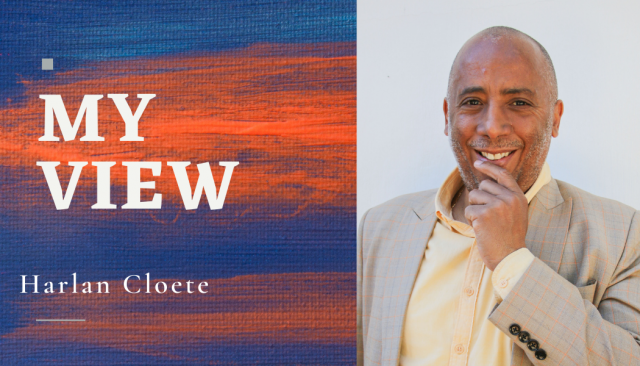
“We have been looted since the days of Bophuthatswana, and every five years a new mafia comes to loot us; we suffer from incompetence, corruption, and politics – it’s bad,” says a colleague about her lived experience in the Mahekeng municipality in the North-West.
The latter, together with the Free State, share the spoils of not producing a single clean audit in the 2020/21 Auditor General (AG) report.
The worst is the Free State, which has consistently failed to produce a clean audit over the past five years.
Despite the fact that the AG is religiously pointing out these glaring anomalies, municipalities have regressed over the past five years.
Municipalities heard but simply did not listen.
And this is our national shame.
The audit findings, however, come as no surprise, drawing a curtain on the municipal financial and performance reporting of the fourth administration.
To say that municipalities are in a state of perpetual depression would therefore be an understatement.
But let us get to the genesis of the AG report.
For the sake of good governance, municipalities are audited annually by the office of the AG.
At the completion of such an audit, opinion is expressed.
An unqualified opinion with no findings (clean audit) means the municipality has produced quality financial statements free from material misstatements and has produced quality performance reports that measure and report on performance in a manner that is useful and reliable and complied with key legislation.
Only 16 percent achieved this.
An unqualified opinion with findings means the municipality was able to produce quality financial statements but struggled to produce quality performance reports and/or to comply with all key legislation.
Only 40 percent achieved this.
A qualified opinion with findings means the municipality’s financial statements contained material misstatements that were not corrected before the financial statements were published. The municipality’s performance report and/or compliance with key legislation is also not adhered to.
This is true for 30 percent of municipalities.
Financial statements with an adverse opinion with findings mean the AG disagreed with virtually all the amounts and disclosures in the financial statements.
This is true for two percent.
A disclaimed opinion with findings means the municipality could not provide evidence for most of the amounts and disclosures in the financial statements, resulting in the AG being unable to conclude or express an opinion on the credibility of the financial statements.
This is true for 10 percent.
And four percent simply did not bother to submit documentation for scrutiny.
So, the audit opinion does count and gives an indication of the state of financial governance.
The March 2022 Municipal Skills and Capacity Assessment Study is yet another report confirming that our problems in local government stem from a number of known problems.
The number one problem, however, is people and behaviour.
But it is the brazen use of consultants that is an indictment of our failing skills development initiatives.
A staggering R1.26 billion was spent on consultants in one year.
And only seven percent of municipalities used consultants to bridge a vacancy gap, whereas 62 percent appointed consultants to provide for the skills deficit in finance departments.
The inability of municipalities to master credible financial reporting means that they continue to appoint consultants, without the vital element of skills transfer.
In total, 79 percent of municipalities reappointed consultants used in the previous year.
So, instead of using the enabling Skills Development legislation (in operation since 1998), managers simply take the easy route and employ consultants instead of growing their own timber.
To top it all, most of the consultants were not even used to solve complex accounting matters but were rather contracted for basics such as the recording and valuation of assets, which are the fundamentals of good asset management.
Added to that, the expected benefits of using consultants to enable quality financial statements were not always apparent, according to the AG.
So, despite the mandatory and discretionary grant system from the SETA, a ministry dedicated to local government, and the South African Local Government Association programmes, municipalities continue to decline at a too rapid pace.
So, what must be done?
The new municipal staff regulations come into effect on 1 July 2022 and are the perfect restart for local government.
Not only does it clarify the recruitment and selection process, but also sets the competency framework for municipal staff.
It further clarifies the skills development and performance management protocols that place managers at the centre of human resource development.
But the implementation of the regulations must be subjected and policed through an audit process akin to that of the AG.
Using evidence-based HR auditing will go a long way to ensure that the credibility and integrity of local government is restored.
Municipalities simply cannot be trusted to implement the regulations on their own.
They must be supported through evidence-based processes to ensure success.
And this is the challenge for the fifth administration – for politicians and administrators alike to behave themselves into a new implementation culture of excellence.
The institutions of higher learning, together with the AG, LGSETA, SALGA, NSG, and COGTA, must form a war room.
It is that big a national crisis, tantamount to a state of disaster.
There simply has to be better coordination and collaboration, as envisaged in the District Development Model.
But for goodness’ sake, let us get it right and lead – not loot.
Not through our fancy words and speeches, but through our deeds.
We must heed the advice of Peter Drucker, who said the best way to predict the future is to design it.
And may I add, to find the courage and patience to implement and see our collective local government dream to fruition.
This may very well be the last chance for municipalities to fix a broken system.
To restore hope and the confidence of South Africans.
To stop the waste.
To create pathways out of poverty, unemployment and inequality.
Decisive action is needed.
It can be done.
It must be done.
- Dr Harlan Cloete is a research fellow in the Department of Public Administration and Management at the University of the Free State. His main research interest is exploring evidence-based HRD governance systems in the public sector, with a keen interest in local government. He is the founder of the Great Governance ZA Podcast https://anchor.fm/harlan-ca-cloete

Premier to probe ‘soft life’
ANC dismisses Magashule threat

Free State pins hopes on gas project

ANC Free State hails party manifesto

EPWP creates 282 907 jobs

SA women in court over R57 million stolen from Lesotho

When selling, condition matters

How disgraced lawyer embezzled trust funds

Woman jailed after killing relatives to claim insurance benefits

Tears for schoolgirls killed in bus crash
Robber who raped fellow inmate in jail gets life term

Free State sides eye Varsity Cup glory

What to think about when buying a new home

How baby got brain damaged at Free State public hospital

Another missing woman found dead

Meat prices soar but SA’s average annual inflation falls to 16-year low
SA, Lesotho agree to share COVID-19 testing load

Teenager arrested for robbery

How hubby and his friend bashed wife’s lover to death before dumping his body in dam
Khune’s inclusion in Bafana Bafana squad baffles Igesund

COVID-19: Makgoe insists schools safer for children

CUT vice chancellor suspended

Eskom debt row takes new twist as municipality comes out guns blazing

Compulsory declaration for every property sold now law

High Court backs Centlec in fight against CFO ousted over criminal, civil cases

Rapist knocked out by his 11-year-old victim gets 18 years in jail
Volksblad Building put up for sale as economic slump forces printer out of Free State

UFS renames infamous Reitz, four other residences at campus
Clover shuts Bloemfontein factory as five workers test positive for COVID-19

Free State retains top spot in matric exams
Trending
-

 Business3 years ago
Business3 years agoMeat prices soar but SA’s average annual inflation falls to 16-year low
-

 Local3 years ago
Local3 years agoSA, Lesotho agree to share COVID-19 testing load
-

 Local3 years ago
Local3 years agoTeenager arrested for robbery
-

 Local2 years ago
Local2 years agoHow hubby and his friend bashed wife’s lover to death before dumping his body in dam
-

 Football4 years ago
Football4 years agoKhune’s inclusion in Bafana Bafana squad baffles Igesund
-

 Local4 years ago
Local4 years agoCOVID-19: Makgoe insists schools safer for children
-

 Local3 years ago
Local3 years agoCUT vice chancellor suspended
-

 Local4 years ago
Local4 years agoEskom debt row takes new twist as municipality comes out guns blazing

